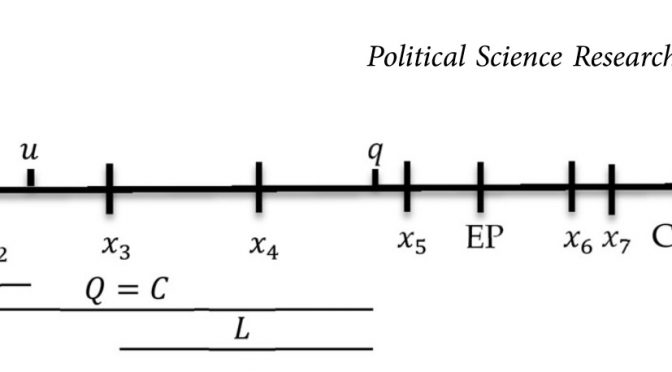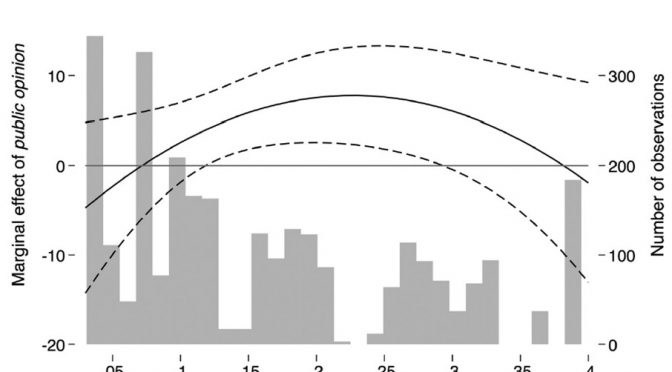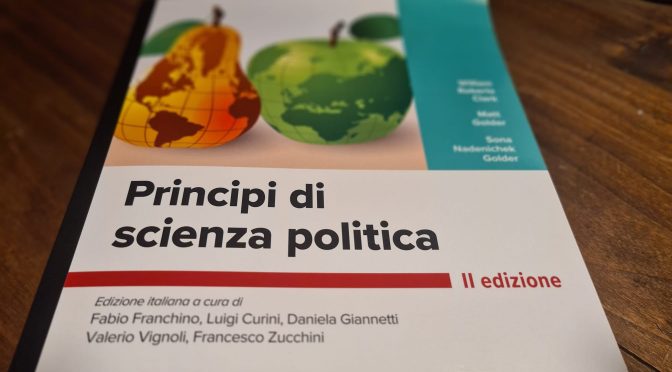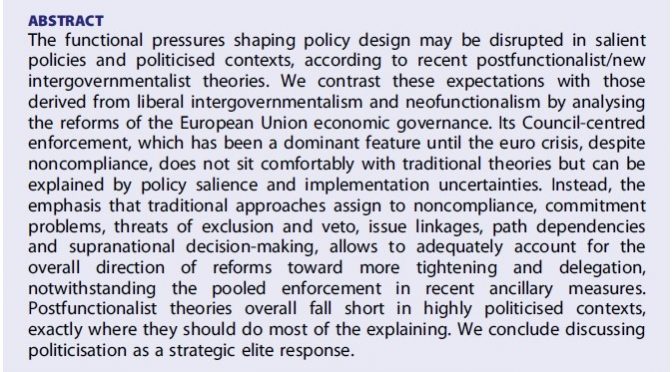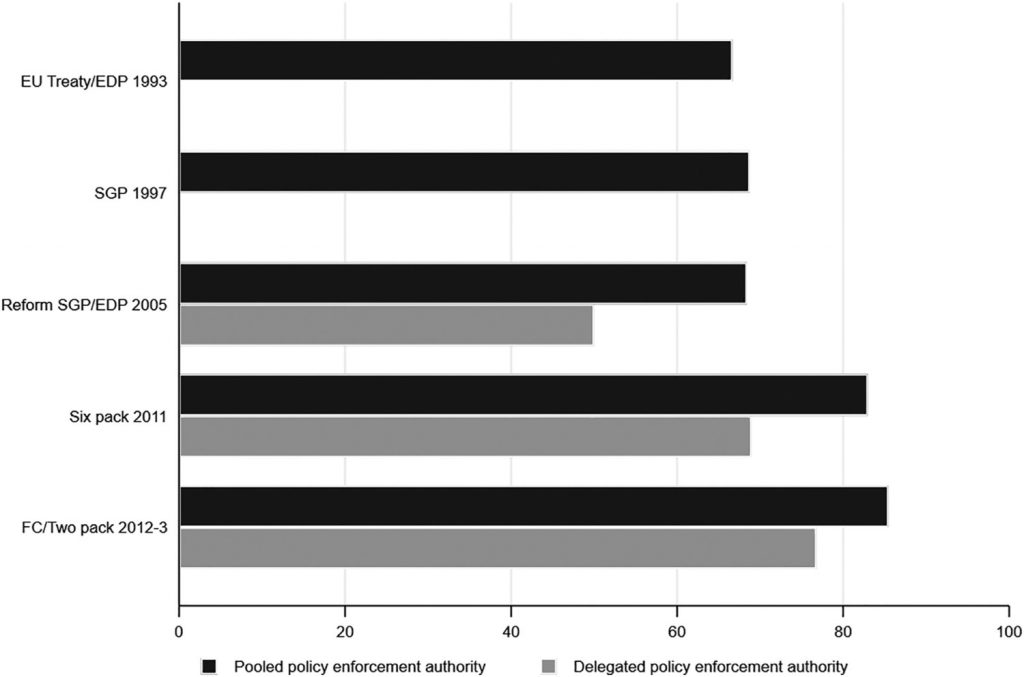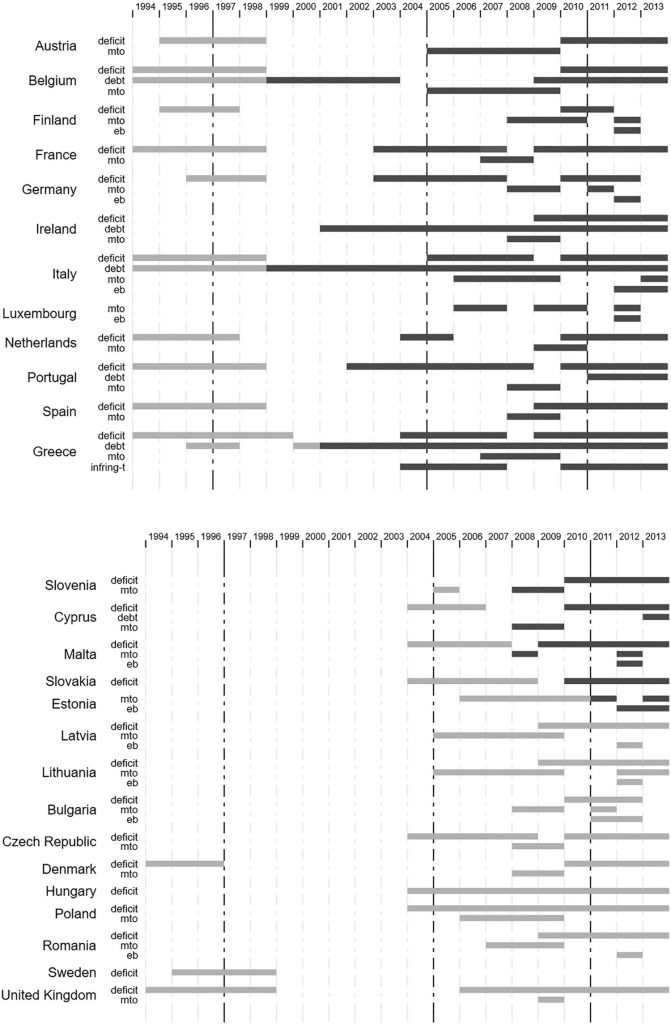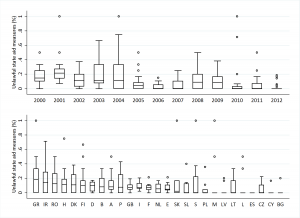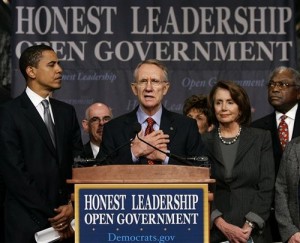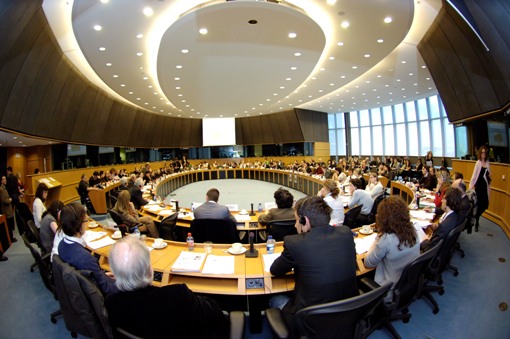Since 1994, the budgetary process of European Union governments can be subject to a supranational oversight procedure if the deficit is deemed excessive.
Does it work? In brief, yes.
In this work, I show that the impact of surveillance during budget drafting offsets that of a two-year shortening of expected government duration, the addition of one party to a government coalition when debt is high, or a leftward shift in government ideology when the risk of replacement is low.
Using a technique called exact matching on treatment histories, I also show that these effects peak after four to five years.
Being under surveillance may lower the benefits of fiscal profligacy in the proximity of elections. Reforms, on the other hand, like the one occurring now, hardly make a difference.
Franchino, Fabio. 2023. ‘International Oversight of Fiscal Discipline’. European Journal of Political Research. Early View. https://doi.org/10.1111/1475-6765.12600.
Asbtract: Fiscal discipline, the sustainable balancing of government outlays with revenues, is one of the most extensively theorized and empirically investigated objects of inquiry in political economy. Yet, studies covering European Union (EU) countries have mostly ignored the oversight of national budgets via the EU excessive deficit procedure. I explain why this surveillance engenders lower deficits and investigate its effects across all EU member countries. Results indicate that the impact of surveillance during budget drafting offsets that of a two-year shortening of expected government duration, the addition of one party to a government coalition when debt is high, or a leftward shift in government ideology when the risk of replacement is low. Moreover, estimates from exact matching on treatment histories indicate that these effects peak after four to five years. These findings have important normative implications for democratic policy-making in European countries and the fledgling EU-wide fiscal policy.

